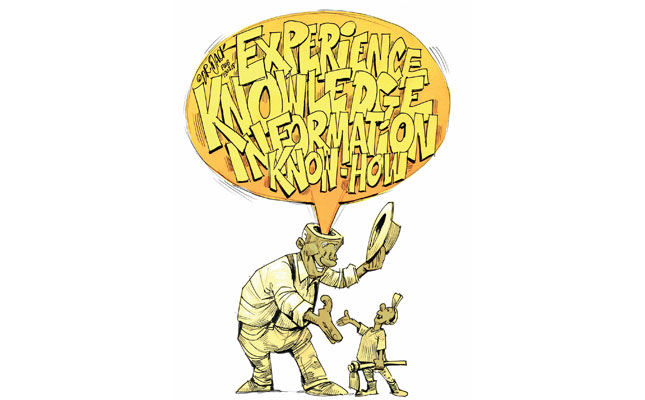
Various state departments seem wary of making use of commercial farmers’ skills. In doing so, they are robbing young emerging farmers of a good source of mentorship and finance.
This will cause more dependency on the state when what is needed is for people to become entrepreneurs.
The lack of skills transfer in South Africa’s land reform programme was exacerbated by the resignation of many mentors after the state stopped paying them for their services.
A possible solution to all of these problems is what I call ‘equity share’.
Equity promotes productivity
Equity share is a partnership where profits from a business are shared among partners in proportion to the equity contribution of each. In the case of land reform, the value of the land is included in the landowner’s equity contribution to the farming business.
Some successes were noted in the Western Cape where workers obtained equity in the farm, and labour and vineyard productivity improved. Lazy and destructive workers were forced to leave by their fellow employees, who now had part-ownership and hence a vested interest in the ongoing success of these wine farms.
In KwaZulu-Natal, Hein Potgieter of Dundee sold two beef and irrigated crop farms to the state as part of the land reform programme. Potgieter then became a mentor to the beneficiaries of these farms.
The state paid for inputs of the first crop, and Potgieter encouraged his mentees to save money for the next year’s farming inputs.
These mentees can now borrow against their bank savings and establish a good credit rating. Although there have been some operational challenges on the two farms since the change of ownership, many successes have been achieved.
Potgieter achieved a largely win-win situation for himself and the beneficiaries by reaching an agreement with them that if they had not finished a particular farming operation by a given date, he would finish the operation himself and then charge them for his services.
In this way, he encouraged his protégés to get their farm work completed on time and to their benefit. Moreover, he was not prejudiced in any way.
Mutually beneficial relationship
Current and former commercial farmers who mentor land reform beneficiaries can generate income for themselves by providing resource-poor emerging farmers with important services they need but cannot yet carry out themselves.
These include contract land preparation, planting, crop management, harvesting, and crop haulage.
Another option for generating an income is for the mentor and emerging farmer to come to an agreement where the mentor is allowed to graze livestock on a section of the emerging farmer’s land, but only within the recognised stocking rate for the farm.
The problems associated with leasing back land sold to government through the land reform programme can also be solved by equity share.
The previous owner of the land could set up a farming company with the beneficiaries and make a commitment to allow them to use some of the income derived from the lease payments to buy equity in the lessee’s farming company.
Over a number of years, the land reform beneficiaries could gradually increase their equity share in this company, while the beneficiaries who really want to farm could receive training at the same time.
Government must also step in
Emerging farmers who have land available but are short of finance to fully equip, stock or manage their farms, should be able to approach local commercial farmers for assistance in achieving these goals.
Commercial farmers may not be willing to spend on capital items on land they do not own, and recipients should be able to appeal to the state for assistance with the required capital.
In this way, large tracts of unused land would become available, thereby increasing employment. Assistance given by the mentor becomes his or her equity in the enterprise but the value of the land is part of the equity of the emerging farmer.
A serious challenge with the equity share concept, which must be solved at the establishment of the farming company, is that of trust between the parties.
It is essential that a trusted bookkeeper handle the books and provide regular feedback. It may even be advisable for each party to have its own bookkeeper, even if the second of these checks the books only intermittently.
It is also advisable for land reform beneficiaries to have objectives that benefit their wider community, such as setting up a stokvel for installing pumps for domestic water or for capital development of the farm.
Planning for a positive future
US businesswoman, author and journalist Arianna Huffington made a shrewd observation when she wrote that “good business people can see around corners”.
Good business people are often able to make accurate, informed predictions of what is likely to happen in the future of their business sectors.
In the present farming environment, good business people will see that it is more important to be part of the solution to land reform than part of the problem, and to point fingers at failures.
It is recommended that farmers’ associations follow the example of KwaZulu-Natal’s Underberg Farmers’ Association, which has appointed someone specifically to help emerging farmers get on their feet.
Emerging farmers can contact this person for help in overcoming any challenges they face.
He will then approach local commercial farmers who are willing and able to contribute by establishing an equity share with the emerging young farmer/s or by providing an agricultural contracting service to assist them.
This does not mean that these commercial farmers have to donate resources to emerging famers; rather, they assist with requests for support to help establish profitable businesses that can boost emerging farmers and enable them to become commercial farmers.
There are also opportunities for farmers’ spouses to contribute to employment in rural communities and increase their own sources of revenue. This could be through establishing commercial arts and crafts, home industries, or tourism enterprises that target visitors to the area.
Mindsets are changing
There are promising signs that farmers are not waiting for government with regard to land reform, but are carrying on themselves. This approach could have a positive impact on land reform.
This is a request to commercial farmers to become part of the solution instead of remaining part of the problem. By doing so, they will also benefit by potentially helping to reduce crime, increase job opportunities, and make new friends in the area.
Jimmy Lonsdale was invited to be a guest expert speaker at the United Nations Economic Commission for Africa Conference Centre on the subject ‘Eradicating Rural Poverty to Implement the 2030 Agenda for Sustainable Development’ in Addis Ababa, Ethiopia, which took place from 27 February to 1 March 2019.
The views expressed in our weekly opinion piece do not necessarily reflect those of Farmer’s Weekly.
Email Jimmy Lonsdale at [email protected].











